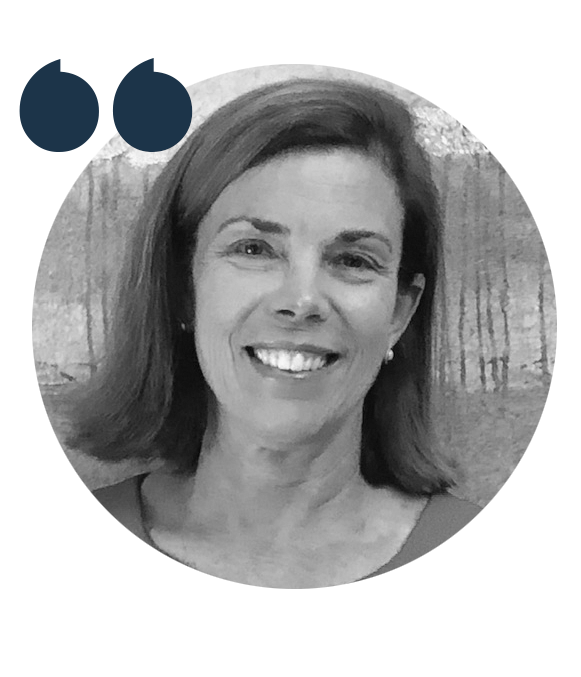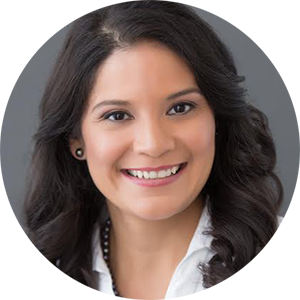
The Stanzel Family Foundation, Inc.
July 8, 2020CIVICAIM CASE STUDY
Designed to Learn,
Evaluating Impact
Challenge
Two years into a new grantmaking strategy, the Sooch Foundation wanted to know what was working, and what wasn’t. Yet with its evaluation methods, it didn’t have the right data or methods to effectively measure results. In the executive director’s words, “We weren’t able to get the information we needed to show what, if anything, was changing. We needed to know if we’re making a difference.”Approach
The Foundation hired CivicAIM to assess its evaluation methods, and design a rigorous evaluation process. CivicAIM conducted a high-level retrospective assessment of the Foundation’s grant investments, and designed a grantmaking impact and evaluation process and reporting structure that uncovers the data that is most pressing for the Foundation.Outcomes
Because of CivicAIM’s counsel and evaluation design, the Foundation has elevated its ability to capture, measure, and pull data about its grantee partners and its overall performance. According to the executive director: “I have relevant data available for analysis by me and my board.” Today the Foundation reaps the benefits of cross-communication, and a structured, intentional learning environment among grantees and Foundation staff.Designing a Rigorous Evaluation Process for Impactful Results
At the core of the Sooch Foundation is the belief that, after family, education is the single biggest lever that can change the trajectory of someone’s life. For this reason, the Foundation supports organizations that offer educational opportunities that increase equity for the most vulnerable students.
Mary Ellen Pietruszynski has served as executive director of the Sooch Foundation for 15 years. In that time, she has guided the Foundation as it evolved in terms of its mission and grantmaking strategy.
“Our strategy has always focused on helping those in the lowest socio-economic strata. We fund organizations that give people access to educational opportunities, along with any wrap-around support they need to overcome their biggest hurdles,” she says. “Beyond tuition payments, a person may need transitional housing, counseling, financial, and academic support. We don’t cobble that together, but we fund social service organizations that do.”

CivicAIM is our strategic counsel in giving and impact.
– Mary Ellen Pietruszynski, Executive Director, Sooch Foundation
“Most funders focus on younger students, suchas preschool and early elementary, yet we saw a need to support older students as they prepare to enter the workforce,” says Pietruszynski. “Lower socio-economic folks need faster pathways. They can’t afford to wait four or six years to get their degrees. We wanted to get more involved in supporting dual enrollment, certificate classes, AP credit, and community college work. We knew that was the change that was needed.”
In 2015, the board wanted to know what was working, and what wasn’t. The Foundation had an evaluation system in place, yet the board and leadership were not satisfied with the results.
Up until then, the Sooch Foundation had used a common grant application and common evaluation form. “I thought it was a good idea to save our grantees time,” says Pietruszynski. “Yet the evaluation form was a basic checklist, with space at the end for some narrative. It was a catch-all. It didn’t answer my questions, or allow me to prepare for the questions I knew my board would be asking.”
“Two years into our new grantmaking strategy, and I was getting concerned,” she says. “We weren’t able to get the information we needed to show what, if anything, was changing. We needed to know if we’re making a difference.”
CivicAIM’s Detailed, Research-based Approach
The Foundation engaged CivicAIM to develop a more rigorous evaluation method and measure the Foundation’s results. Erica Ekwurzel, principal of CivicAIM, launched the project by assessing the Foundation’s grantmaking evaluation efforts to date. By conducting a high-level retrospective assessment, CivicAIM gave the Foundation’s staff and leadership a snapshot of the Foundation’s grant investments over the past two years. “This included an audit of grant evaluation reports, grantee goals and outcomes, current evaluation methodology, tools, and strategies to confirm whether the Foundation’s entire evaluation process and data collection was aligned with its mission, direction, and target measures,” says Ekwurzel.
Building on this thorough review, CivicAIM designed a grantmaking impact and evaluation process and reporting structure that uncovers the data that is most pressing for the Foundation.
“There was no need to reinvent the wheel,” says Pietruszynski. “Erica produced many different templates that organizations use throughout the country. I wasn’t familiar with these, but she was. We parsed through these templates together, which gave her a better understanding of what was important for us. With these insights, she crafted a new form that captured exactly what we were looking for,” says Pietruszynski

Erica’s talents as a practitioner evolved our ideas into the day-by-day processes we needed to measure our grantmaking over time.
– Mary Ellen Pietruszynski
Outcomes
“Today, because of CivicAIM’s counsel and evaluation design, I have a much better handle on the data we are capturing, and the difference the Foundation is making,” says Pietruszynski. “I can now easily see whether we’ve increased capacity in our grantee partners, which wasn’t evident before.”
The biggest surprise? How user-friendly the evaluation process is compared to how it used to be. “Based on questions that CivicAIM drafted, I can now more easily measure—and get at—the data I most need to learn.
At any time, I can open my evaluation binder, and I always have the answers I need at my fingertips.”
With the success of the project, the Sooch Foundation hired CivicAIM to manage its evaluation and reporting efforts on an ongoing basis. Erica is on-site at the Foundation offices once per week to oversee evaluation, and offer strategic guidance to its mission-related activities.
Evaluation Report Questions
Designed with relationships, continuous learning, and impact in mind, CivicAIM crafted these questions for grantee partners to complete as part of the Sooch Foundation Grantee Evaluation Report.
Grantee partners said they appreciate the evaluation report form questions and structure, that it is a process of reflection that helps them “get at the work” and what they have achieved.
Beyond the Grant:
» Were you able to leverage additional funds or in-kind support as a result of the Sooch Foundation? If so, please specify.
» What plans, if any, do you have to communicate your outcomes and lessons learned with others?
» Briefly share your vision of your organization/program’s efforts impacting larger systemic change or reform to the areas of education, justice system, and/or the workforce.
» Is there a human-interest story you would like to highlight that we can share with our Foundation board?
» What could we have done to make collaborating with the Sooch Foundation easier for you?

“Erica reads all the reports, and keeps me on track with a running list of priorities we are working on over weeks and months. She has an incredibly organized mind, and she supports me on several strategic and operational levels. I often include her in grantee and high-level meetings so that I can gain her insights.”
— Mary Ellen Pietruszynski


“This endeavor is evolving as we learn, and the greatest benefit is that it has encouraged more cross-communication and a structured, intentional learning environment among grantees, Foundation staff, and board.”
— Erica Ekwurzel, CivicAIM
Working with Erica and CivicAIM
With her education and historical knowledge of philanthropy, Ekwurzel is a critical thinker who brings fresh ideas to her clients. “She’s a great partner with whom I can brainstorm. That’s something I truly value in a colleague and an advisor—otherwise, I’m working in a vacuum,” says Pietruszynski. “Erica is a great listener, smart and resourceful, and willing to go the extra mile in everything she does.”
“CivicAIM supports me and the Foundation on many different levels, from big-picture strategizing to small-detail executing,” says Pietruszynski. “Erica rolls up her sleeves and does what it takes to get the job done, no matter how difficult or complicated it may look in the beginning. Her attitude is energetic and consistent, always approaching our work with a ‘how can I help? I’m here to help’ attitude.”
About the Sooch Foundation
Sooch Foundation is a private independent foundation supporting educational opportunities for the underserved in Austin, Texas. With an asset base of $15 million, the Foundation grants approximately $700K to $1 million per year in grants. The Foundation is approaching its third decade of grantmaking, with a mission that became more focused in 2013 to make a positive and permanent change in the lives of economically disadvantaged people in Austin through increased education opportunities.
Navdeep (Nav) Sooch founded the Sooch Foundation (SoochFoundation.org) in 2004. A tech entrepreneur who co-founded Silicon Laboratories, Sooch credits his personal success to the educational opportunities afforded him, and believes that education can be the single biggest factor in an individual reaching self-sufficiency.
For this reason, the Foundation supports organizations offering educational opportunities to the poorest of the poor, with a focus on older students (adolescents and adults) to gain the skills and credentialing they need to exit out of poverty and become self-sustaining citizens.
The board takes an entrepreneurial, logic-driven approach to its grantmaking, and embraces education as a trajectory for making positive, lasting change for individuals, families, and the community-at-large.
What’s your Philanthropic AIM?
CivicAIM is a philanthropy consulting firm that supports mission-driven families, small-staffed foundations, and grantmaking organizations, including funder collaboratives and giving circles. Together with you, we develop and execute grant and evaluation strategies that lead to the greatest impact—and we facilitate critical conversations and transitions that lead to the most meaningful and satisfying experience in your philanthropy.
Contact us today for a free consultation.
Designed to Learn, Evaluating Impact
